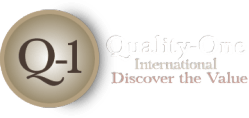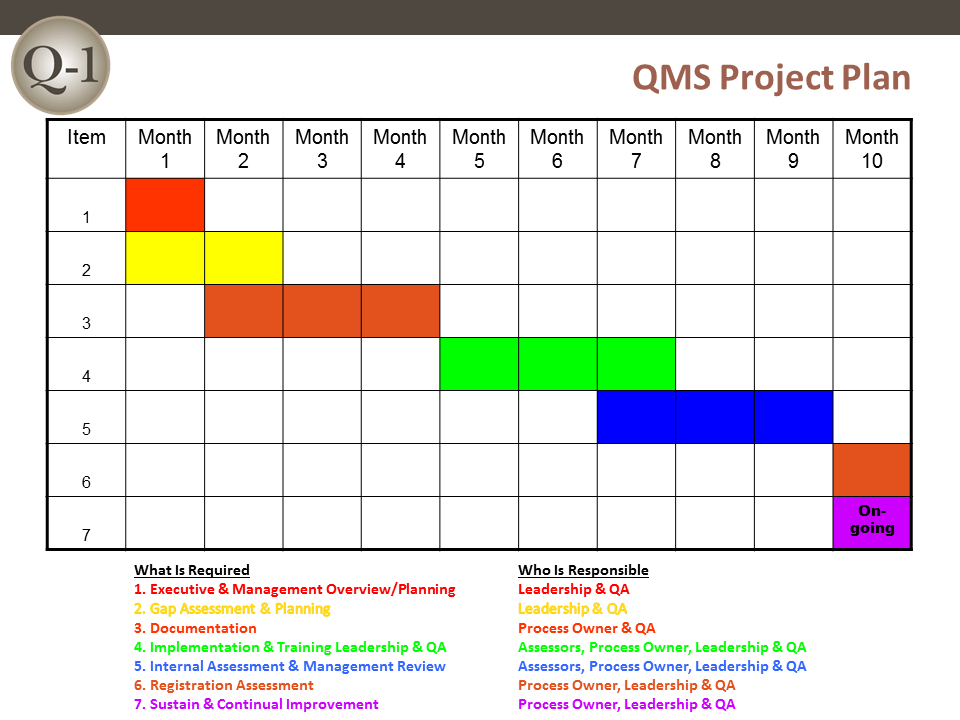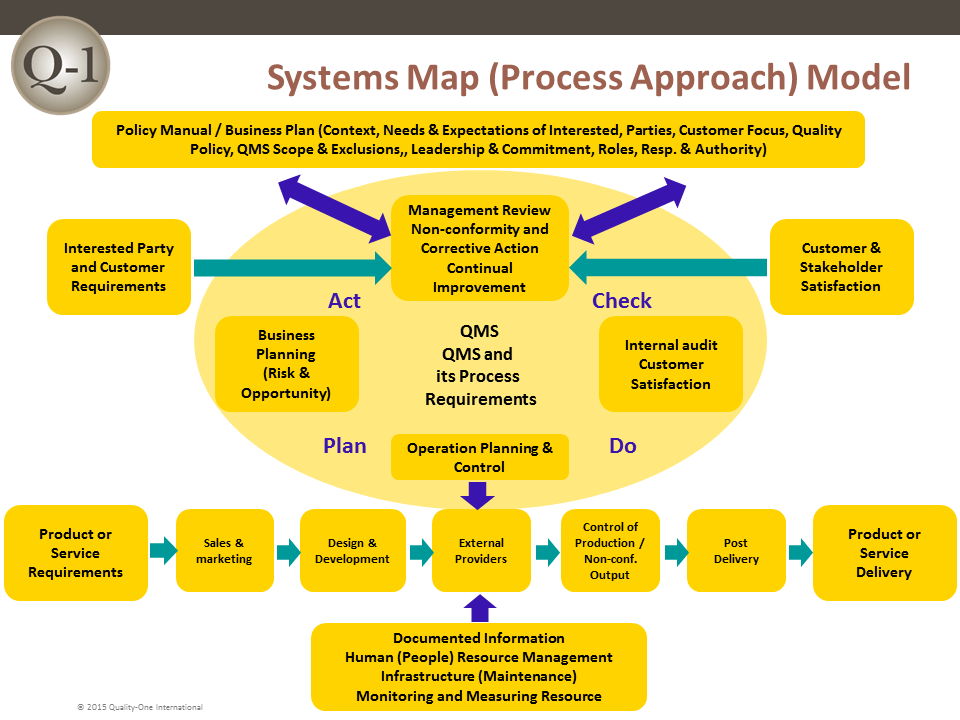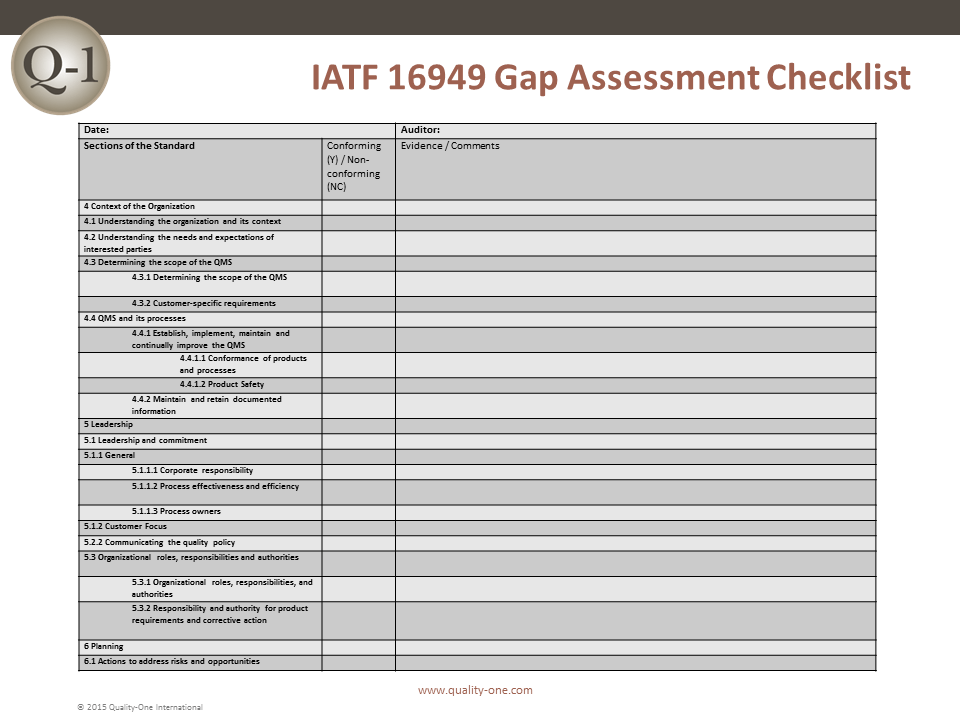IATF 16949 Consulting
– Guidance and Direction –
⇓ Introduction to IATF 16949 Consulting
⇓ Benefits of IATF 16949 Consulting
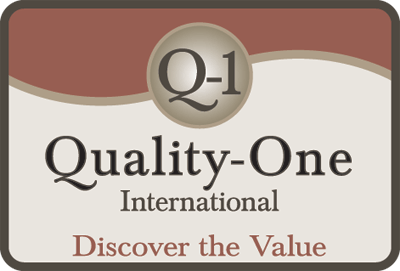
Introduction to IATF 16949 Consulting
Poorly designed and implemented Quality Management Systems (QMS) can cause detrimental burdens on an organization, making it difficult to keep customers satisfied and attain business goals.
If the QMS is developed and implemented correctly, it can have an immediate and long term effect with successes of:
- Improved Customer Satisfaction
- Exceed business objectives goals
- Increased operational efficiency
- Lower Management System administrative burden
- Less Management System redundancy
- Integration of Quality Management Principles through design
- Integration of multiple standards (ISO 14001, ISO 45001, etc.)
Quality-One can assist in the development and implementation of the QMS to assure for immediate and long term success. We will assess, design and assist in developing and implementing your QMS. We specialize in utilizing best practices from multiple industries to provide a well-balanced QMS solution for our customers.
Benefits of IATF 16949 Consulting
The IATF 16949 Consulting expertise from Quality-One will benefit your organization by quickly applying our knowledge to your unique circumstances. We have acquired our QMS knowledge by being in the forefront of management system best practices, specifically Management System support, for over 30 years and hundreds of implementations in various industries. With Quality-One IATF 16949 Consulting, your organization will realize the benefits from our IATF 16949 development and implementation methods much faster.
Benefits of IATF 16949 Consulting include:
- Reduced number of customer complaints
- Ensure Product Safety requirements are met
- Reduced number of operational process defects
- Exceed Organizational objectives and increasing business opportunities
- Reduced QMS development and implementation time
- A QMS designed to suit the organization and your customers’ requirements
- Best practices and depth of knowledge and experience which significantly impacts the QMS design and meeting the organizations business goals
There is no substitute for experience. An experienced consultant from Quality-One will help your organization live and own the QMS and operate at its optimal level.
Methodology for IATF 16949 Consulting
A proven QMS development and implementation approach should be used based on project management methodologies. A structured approach should be used for defining project plans, specific responsibilities and verification of results. The result will be a development and implementation strategy that is more efficient and provides for first-time compliance or registration to the IATF 16949 and ISO 9001 requirements.
IATF 16949 Compliance can be achieved through Quality-One’s Seven Phase Approach:
- Executive and Management Overview / Planning
- Gap Assessment and Planning
- Documentation
- Implementation and Training
- Internal Assessment and Management Review
- 3rd Party Registration Assessment
- Sustain and Continual Improvement
The Quality-One Seven Phase Approach is detailed as follows:
- Executive and Management Overview / Planning
- Planning
- Define Context of Organization
- Define Interested Parties and Requirements
- Define QMS Scope
- Define High Level Processes and System Map
- Define High Level Project Plan Description
- Define High Level Risks
- Define Organizations Objectives and Targets
- Communication and Training Plan
- Define Communications Plan
- Define Training Plan
- Executive and Management Overviews
- Requirements of the ISO 9000 Series of Standards
- Process Approach to Quality Management Systems
- Managing the Interaction of Processes and Systems
- Description of the Organization’s Project Plan
- Planning
- Gap Assessment and Planning
- Gap Assessment
- Perform a Gap Assessment of the current QMS against Revised or Added requirements of the ISO 9001 / IATF 16949 Standards
- Use Quality Management Systems Map as a guide
- Perform Assessments with Process Owners
- Document and use results as inputs into Process Development
- Planning
- Re-assess planning performed in Phase 1
- From Gap Assessment Findings Revise / Update (as required):
- Project Plans
- Communications Plans
- Training Plans
- Gap Assessment
- Documentation
- Policy Development
- Create Level 1 Policy Document
- Involve Leadership in Policy Development
- Include Quality Management Systems Map
- Use as a guide in Policy Development
- Include QMS references versus the ISO 9001 / IATF 16949 Requirements
- Process Development
- Create QMS processes using the automotive process approach
- Define Roles and Responsibilities
- Determine Document Control Requirements
- Review / Approvals / Document Nomenclature
- Review Requirements with Process Owner / Teams
- Policy Development
- Implementation and Training
- Implementation
- Develop Implementation Plans
- Define by Process
- Amount of Detail Dependent on Process Risk
- New
- Revised
- Current Non-Conformances with Process
- Implementation Plan Detail
- Purpose: describe the implementation requirements for the defined process in order to support the QMS Requirements
- Scope: define the scope the plan covers (process / area)
- Activity: define required activity steps
- Who is Involved: define who needs to be involved
- Timing: define timing requirements
- Deliverables: define plan deliverables
- Responsibility: define responsibilities
- Other as appropriate
- QMS Training
- All Employees
- Use communications process developed in phase 1 to cover general requirements
- Communicate Quality Plan Requirements
- Leadership / Process Owner / Manager / Internal Assessors
- Review new Quality Management System
- Quality Manual
- High Level Processes (Procedures)
- Management
- Review new Quality Management System
- Quality Manual (Policies)
- High Level Processes (Procedures)
- Functional Area Requirements
- As per Implementation Plans for those areas
- Other
- As appropriate to the organization
- Internal Assessor Training
- Current Assessors
- IATF 16949 and ISO 9001 Overview
- Automotive Process Assessment Methodology
- Applicable Customer Specific and Regulatory requirements
- Automotive Core Tools Overview
- New Assessors
- IATF 16949 and ISO 9001 Overview
- Automotive Process Auditing Methodology
- Applicable Customer Specific and Regulatory requirements
- Automotive Core Tools Overview
- Internal Auditing Basics
- Current Assessors
- All Employees
- Implementation
- Internal Assessment and Management Review
- Internal Assessment
- Internal Assessment Planning
- Based on Quality Systems Map and Defined Processes
- Assessments by Core and Support Functional Areas
- Internal Assessments (Validate QMS Implementation)
- Define Who Will Perform Assessments
- Define Assessment Schedules
- Communicate Assessment Schedules to Process Owners / Auditees
- Perform Assessments and Initiate Corrective Actions as Required
- Prepare Internal Assessment Reports for Management Review
- Management Review
- Plan Management Review Meeting
- Attain all process output and Analyze Data
- Summarize Analyzed Data for Review Input
- Cost of Poor Quality
- Measures of Process Effectiveness and Efficiency
- Product Conformance
- Assessments of Manufacturing Feasibility 9new or Changed Operations or Products)
- Results of Internal Assessments
- Customer Satisfaction and Review of Customer Scorecards
- Review of Performance Against Maintenance Objectives
- Warranty Performance / Identification of Potential Field Failures / Actual Field Failures and their Impact on Safety or the Environment
- Status of Corrective and Preventive Actions
- Follow-up Actions from previous Meetings
- Changes that could Affect the QMS, and Recommendations for Improvements
- Prepare and Summarize Management Review Output Decisions or Actions Required to
- Improve the Effectiveness of the QMS and its Processes
- Improve the Product Related to Customer Requirements
- Action Plan for Customer Performance Targets not met
- Internal Assessment
- Compliance / 3rd Party Registration Assessment
- Close any Open Items / Corrective Actions from Internal Assessment or Management Reviews
- Complete Cross-Reference of QMS versus ISO 9001 / IAFT 16949 Requirements
- Prepare Registrar Assessment Plan with Registrar / Select Guides (Process Owners)
- Schedule Assessment and Communicate to Process Owners and Auditees
- Sustain and Continual Improvement
- Summarize Continual Improvement Activities by Process and Align to
- Business Goals
- Quality Objectives
- Quality Planning Activities
- Measures of Effectiveness
- Continued Internal Assessment and Management Review to Assure Process and System Continual Improvement
- Summarize Continual Improvement Activities by Process and Align to
Learn More About IATF 16949 Consulting
Quality-One offers Quality Management Systems Development through Consulting, Training and Project Support. Quality-One provides Knowledge, Guidance and Direction in Quality Management Systems development activities, tailored to your unique wants, needs and desires. Let us help you Discover the Value of IATF 16949 Consulting, IATF 16949 Training or IATF 16949 Project Support.
